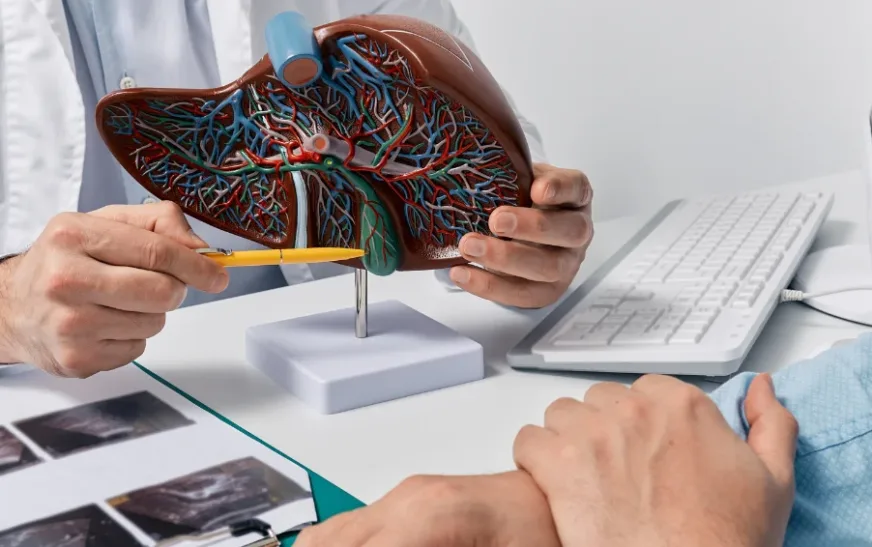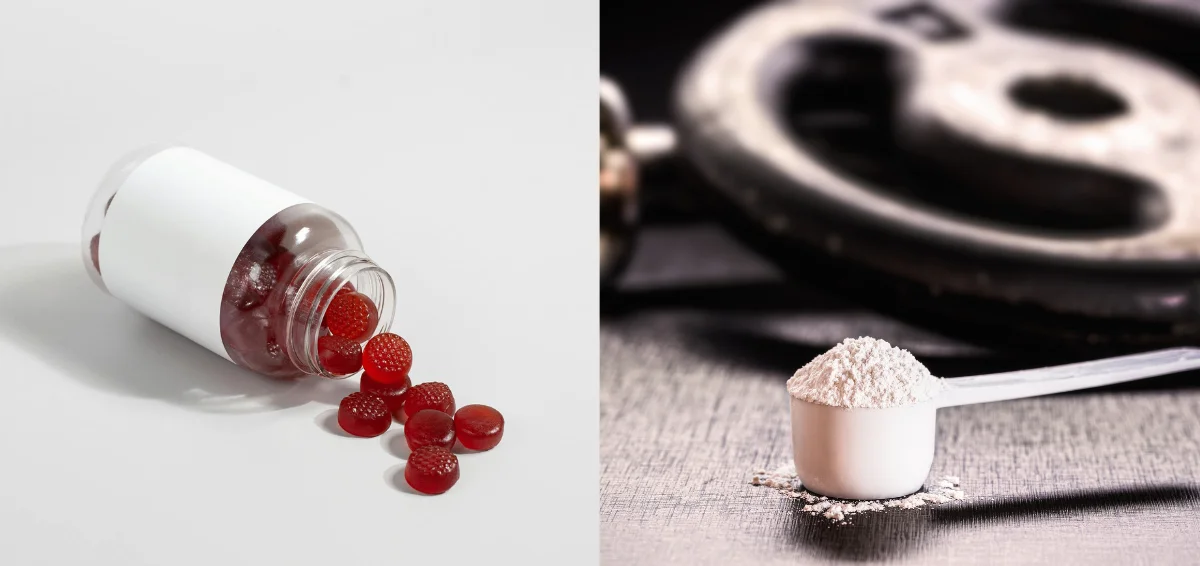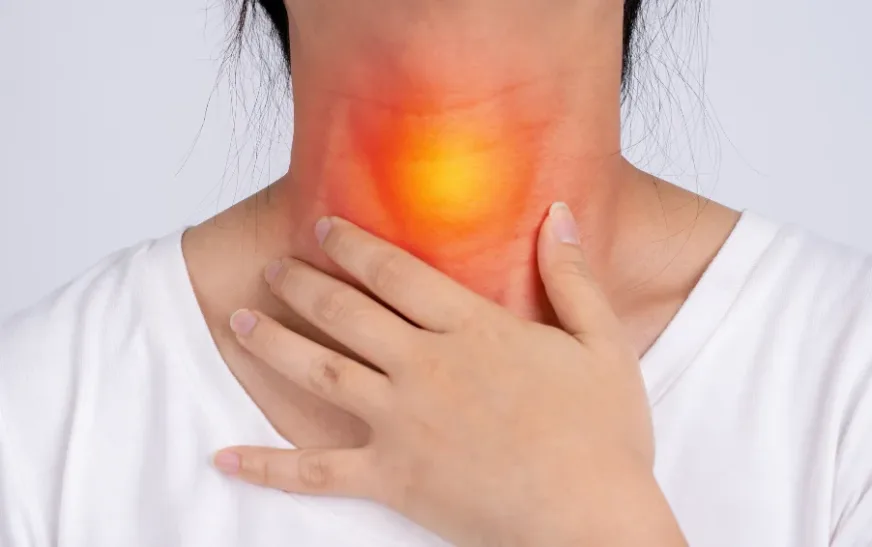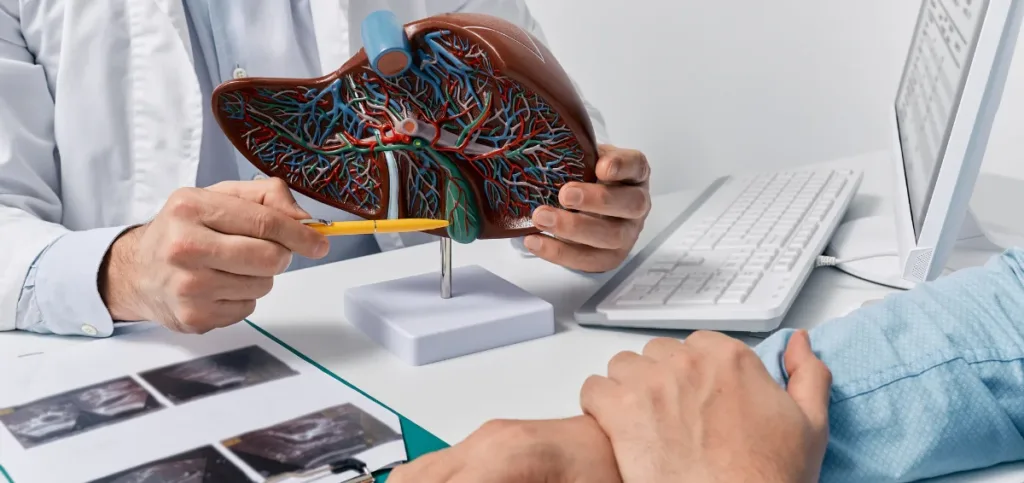
Your liver is one of the hardest-working organs in your body. It cleans your blood and helps your body to digest food. Think of it as your body’s built-in filter. But when the liver gets sick, it sends out warning signs. Sadly, many people don’t notice them or ignore them until it’s too late. Understanding these warning signals is very important. In this guide, we’ll talk about the 7 signs your liver is dying and why you should never overlook them. Paying attention early can save your health and even your life.
Why the Liver is so Important
The liver does over 500 tasks every day. It breaks down fats, proteins, and sugar. It cleans harmful substances like alcohol and medicine from your blood and makes bile, which helps your stomach digest food. Without the liver, your body cannot survive. Therefore, when the liver begins to shut down, the entire body suffers.
7 Signs of Liver Issues
1. Yellow Skin and Eyes (Jaundice)
One of the clear warning signs of liver failure is jaundice. This happens when your skin and the whites of your eyes turn yellow. The yellow color comes from a substance called bilirubin. Normally, your liver removes bilirubin. But if your liver is dying, it builds up in your blood. Jaundice should never be ignored. It’s your body’s way of shouting for help.
Why This Happens
- The liver cannot process bilirubin.
- Buildup causes yellowing of the skin and eyes.
- Urine may also turn dark brown.
2. Swelling in the Belly (Ascites)
Another big warning sign is when your belly starts to swell. This is not from eating too much food. It happens because fluid collects in your abdomen. This condition is called ascites. If your stomach feels heavy or painful, you must see a doctor. Swelling is one of the dangerous 7 signs your liver is dying and needs medical attention fast.
Why This Happens
- A weak liver cannot balance fluids.
- Blood pressure in the liver veins increases.
- Extra fluid leaks into the stomach area.
3. Constant Fatigue and Weakness
Do you feel tired all the time, even after resting? Extreme fatigue is another serious sign of liver trouble. Normally, the liver turns food into energy. But if it’s damaged, your body doesn’t get the fuel it needs. This type of tiredness feels different from normal tiredness. It is heavy and constant. It is your body’s way of telling you something is very wrong.
Why This Happens
- The liver cannot store or release glucose properly.
- Toxins build up, making you feel weak.
- Muscles lose strength due to poor metabolism.
4. Easy Bruising and Bleeding
If you notice bruises appearing on your skin without any clear reason, it may point to a failing liver. Also, you can bleed easily. This can be very dangerous. Internal bleeding is common in liver disease and can be life-threatening if ignored.
Why This Happens
- A healthy liver makes proteins that help blood clot.
- When the liver fails, these proteins drop.
- Even small cuts may bleed more than usual.
Read Also: 7 Day Meal Plan for Kidney Disease
5. Confusion and Memory Problems (Hepatic Encephalopathy)
Your liver also filters toxins from your blood. When it stops working, those toxins travel to your brain. This causes confusion and poor memory. Plus, it can lead to a coma sometimes.
Why This Happens
- Ammonia builds up in the blood.
- Toxins affect brain function.
- A person may act strangely or forget simple things.
6. Severe Itching of the Skin
Itchy skin may not seem like a big problem at first, but when it is constant and severe, it can point to serious liver damage. Many people with liver failure say the itching is so strong that it keeps them awake at night. No matter how much they scratch or use creams, the itch doesn’t go away.
Why This Happens
- Bile salts build up under the skin.
- This causes a strong, itchy feeling.
- Creams or scratching won’t solve it.
If itching continues for weeks and no other cause is found, the liver must be checked. It is one of the hidden 7 signs your liver is dying.
7. Swollen Legs and Ankles
Just like the belly, your legs and ankles may also swell when the liver is failing. This is called edema. It happens because the liver cannot manage blood circulation and fluid balance properly. At first, you may notice your shoes feel tight or your socks leave deep marks on your skin. Over time, the swelling can get worse and spread higher up the legs. Gravity pulls this fluid down, so it shows up in the ankles and feet most of the time. Unlike swelling caused by injury, this type is usually painless but uncomfortable. The skin may feel stretched or stiff. In severe cases, it can make walking harder. Sometimes, pressing on the swollen area leaves a dent that stays for a few seconds.
Why This Happens
- Liver damage lowers protein levels in the blood, especially albumin.
- Low albumin makes it hard for the body to hold fluid inside blood vessels.
- Extra fluid leaks out and collects in tissues.
Other Warning Symptoms You May Notice
Apart from the seven main signs, other signals of liver failure should not be ignored. All of these symptoms show that your liver is struggling.
- Nausea and vomiting.
- Sudden weight loss.
- Loss of appetite.
- Cramps in muscles
- Strong, musty breath odor.
Causes of Liver Failure
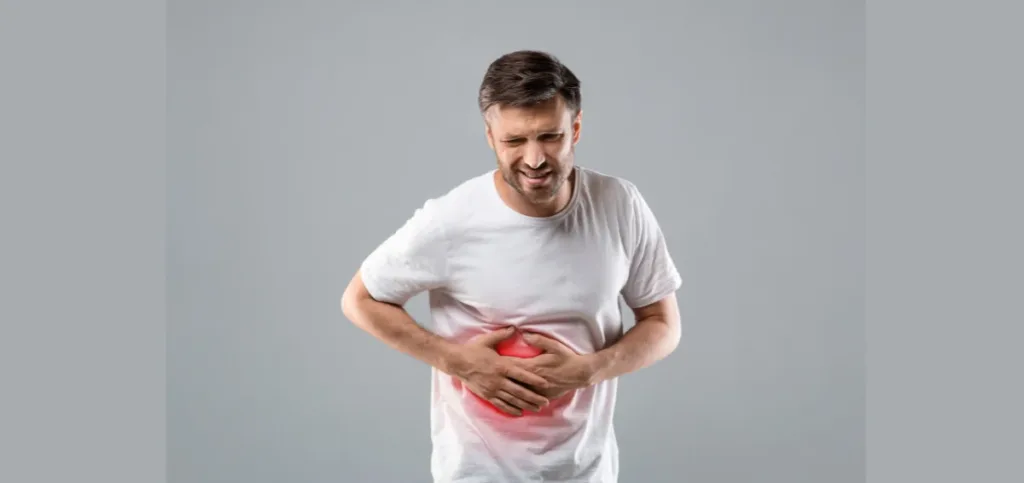
Liver failure develops in a slow manner after long-term damage. Here are the main causes behind it.
Alcohol Abuse
Drinking too much alcohol over many years is one of the most common causes of liver failure. The liver becomes scarred, a condition called cirrhosis. The liver can no longer function properly once scar tissue replaces healthy cells. So, you have to cut back or quit alcohol to prevent further damage.
Hepatitis Infections
Viral infections like Hepatitis B and C attack the liver directly. These viruses cause inflammation and damage liver tissue slowly. If untreated, the infection can cause chronic liver disease. This can further lead to liver failure. Vaccines are available for some types, and early treatment can lower the risk of serious damage.
Fatty Liver Disease
A large amount of fat in the liver can cause swelling and damage. This is known as fatty liver disease. It is linked to obesity, diabetes, and a poor diet most of the time. Plus, it can progress to cirrhosis and liver failure if it is ignored. Healthy eating and exercise can help prevent it.
Overuse of Medicines
The liver processes almost all medicines, including painkillers. If you take some medications or mix drugs without medical advice, then it can overload the liver. Always follow your doctor’s prescription and avoid taking unnecessary drugs to protect your liver.
Genetic Conditions
Some people are born with inherited conditions that can affect the liver. Examples include:
- Wilson’s disease: Here, copper builds up in the liver.
- Hemochromatosis: A High amount of iron is stored in the liver.
These conditions damage the liver in a slow manner if you do not treat them. With early diagnosis and medical care, people can manage symptoms and prevent failure.
Read Also: 7 Exercises To Do Everyday
How Doctors Diagnose the Problems in the Liver
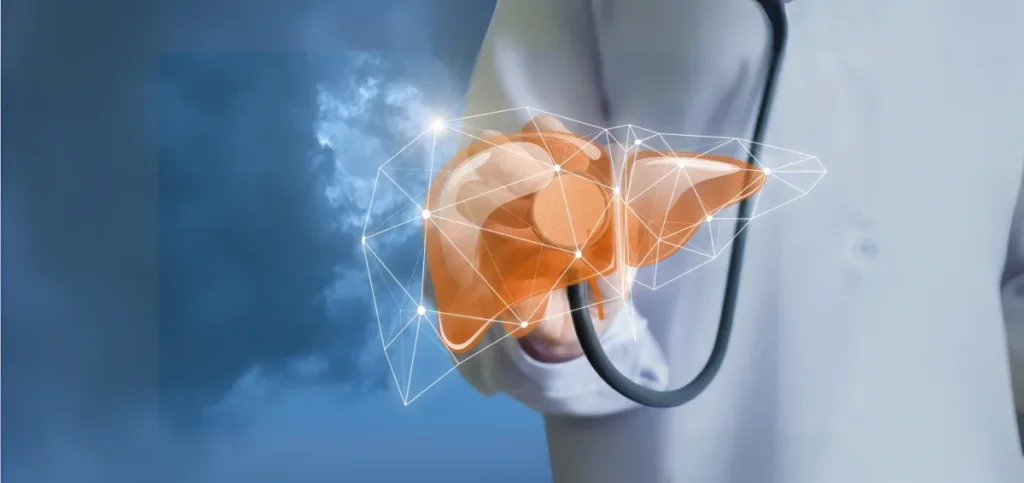
If you notice any of these signs, doctors may run tests to check your liver. These may include:
- Blood tests to check enzyme levels.
- Ultrasound or CT scans to see damage.
- Liver biopsy to test a small tissue sample.
Early testing is very important. It helps doctors slow down damage and prevent failure.
How to Protect Your Liver
The good news is that you can take some steps to protect your liver. Here are some simple habits.
- Avoid too much alcohol.
- Eat more fruits, vegetables, and whole grains.
- Maintain a healthy weight.
- Take medicine only as prescribed.
- Get vaccinated against hepatitis.
- Exercise regularly.
Small lifestyle changes can make a solid difference in keeping your liver healthy.
The Bottom Line
Your liver is like a natural filter of your body. It works silently every day. But when it starts to fail, it gives strong warning signs. Yellow eyes, swelling, fatigue, confusion, bruising, itching, and swollen legs are the 7 signs your liver is dying that you should never ignore. Spotting these early can save your health. Take care of your liver with healthy habits, regular checkups, and by avoiding harmful substances. Your body only gives you one liver. Protect it, and it will take care of you for life.

